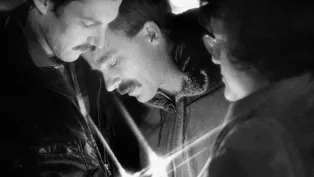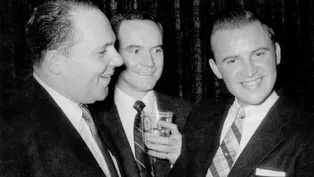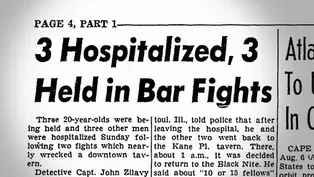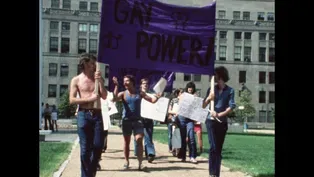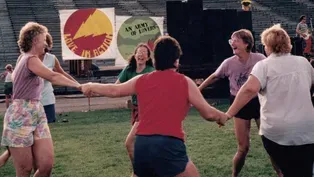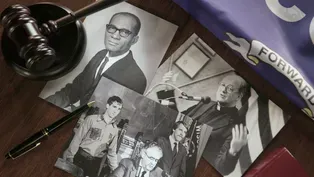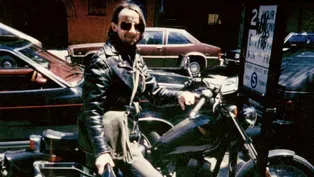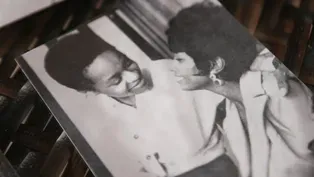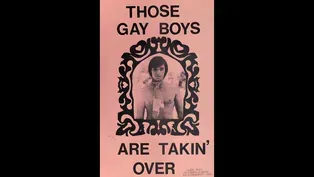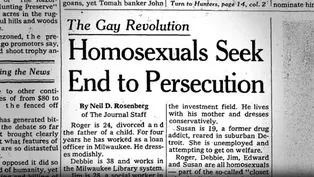Wisconsin Pride
Judy Greenspan
Clip: Special | 5m 2sVideo has Closed Captions
The nation’s first out lesbian candidate for office ran to protest anti-LGB school policy.
Judy Greenspan entered UW-Madison ready to protest the war in Vietnam and find fellow lesbians. Joining protests was easy, but the burgeoning, male-dominated gay rights movement was a disappointment. Greenspan co-organized Madison Lesbians. Then, after being barred from speaking at Madison schools, Greenspan ran for school board as the first out lesbian in the nation to stand for public office.
Problems with Closed Captions? Closed Captioning Feedback
Problems with Closed Captions? Closed Captioning Feedback
Wisconsin Pride is a local public television program presented by PBS Wisconsin
Funding for Wisconsin Pride is provided by Park Bank, SC Johnson, the Greater Milwaukee Foundation, the Evjue Foundation, the charitable arm of the Capital Times, TruStage, the New Harvest Foundation,...
Wisconsin Pride
Judy Greenspan
Clip: Special | 5m 2sVideo has Closed Captions
Judy Greenspan entered UW-Madison ready to protest the war in Vietnam and find fellow lesbians. Joining protests was easy, but the burgeoning, male-dominated gay rights movement was a disappointment. Greenspan co-organized Madison Lesbians. Then, after being barred from speaking at Madison schools, Greenspan ran for school board as the first out lesbian in the nation to stand for public office.
Problems with Closed Captions? Closed Captioning Feedback
How to Watch Wisconsin Pride
Wisconsin Pride is available to stream on pbs.org and the free PBS App, available on iPhone, Apple TV, Android TV, Android smartphones, Amazon Fire TV, Amazon Fire Tablet, Roku, Samsung Smart TV, and Vizio.
- By 1971, the group had adopted the name "the Gay Liberation Front" and had been attracting new members across campus, including an anti-war activist named Judy Greenspan.
- Judy Greenspan: I can't count the number of times I was tear gassed.
[explosion, shouting] There was, like, a revolutionary spirit on campus.
We were all part of this progressive movement, and it was a massive movement.
- A New Jersey native, Judy Greenspan came to school at UW-Madison drawn by the anti-war movement.
Finding like-minded people fighting for a cause, Greenspan was still looking for something more.
Searching for other lesbians... - Judy Greenspan: So, I found out where the Gay Liberation Front was meeting.
I went to a meeting, and they were literally about forty-five young men... and one woman.
I just said, "This is ridiculous."
- Determined to build a sisterhood, Judy Greenspan and a friend began to post fliers on campus, calling for lesbians to come together.
What Greenspan did not expect was the reaction from comrades in the anti-war movement when they saw the fliers.
- Judy Greenspan: People would say, "Oh, what are you organizing?"
And they'd look at it, and their jaw would drop.
And then, they'd sort of walk away.
The amount of homophobia in the anti-war movement was, I thought was pretty deep.
I don't see the dichotomy between being a political person fighting for social change and being queer.
I don't; I think they're-- they're together.
- Greenspan's grassroots organizing helped form the group that would become known as Madison Lesbians.
- Judy Greenspan: We didn't have the community.
We had to build the community.
And we just did it the best that we could.
You know, could somebody have done it better?
Probably.
[laughs] But we did it; We did it.
[laughs] - Together, Madison Lesbians and the Gay Liberation Front traveled around the state, working with emerging gay organizations at other college campuses on LGBTQ+ issues.
But at home, they would find themselves locked out when students at Madison East High invited Greenspan to speak.
- Dick Wagner: The principal ruled that "No, out lesbian Judy Greenspan couldn't come and speak."
In fact, the Madison Principals' Council ruled that they wouldn't allow any homosexual speakers in the high schools.
- Judy Greenspan: And the school board totally backed him up on it.
Everybody would say, "Oh, yeah.
"I mean, that's a no-brainer.
"Gay people are sick; They're ill. "It's illegal.
Can't let them into schools."
- The ban not only kept gays and lesbians out, but also put any closeted students or teachers at risk.
The Madison Lesbians and activist Judy Greenspan decided to take a stand for gay rights.
- Judy Greenspan: We fought back by running an openly lesbian candidate for school board.
And I said, "Oh, yeah, I'll do it."
So, as a lesbian, I could not go into the schools.
I couldn't speak to the students.
I couldn't get through the door.
But as a candidate, they would not be able to deny me entrance.
- Dick Wagner: As a candidate, she would appear on forums that were in the high school and be able to debate.
It was a very inventive way to challenge the ruling of the principal.
- Judy Greenspan: We were not running to be part of the political system.
But we really ran as a way to protest what we thought is a horrible injustice.
- Greenspan would not win th e 1973 school board election.
But would make history as the first out lesbian to run for public office in America.
And the first in a long line of LGBTQ+ people who sought office in Wisconsin.
- Dick Wagner: Wisconsin is the only state to have elected three out congresspeople.
Steve Gunderson, a Republican.
Mark Pocan, a Democrat.
And the first U.S. out Senator, Tammy Baldwin.
- For Judy Greenspan, it was about seeking justice.
Taking a public stance for those who couldn't.
- Judy Greenspan: It was definitely one of the proudest things that I have done in my life.
Video has Closed Captions
Clip: Special | 5m 57s | Responding to the AIDS pandemic took political will and new social action led by ACT-UP. (5m 57s)
Video has Closed Captions
Clip: Special | 2m 9s | Gay bars once were the only place you could be gay, and it was still risky. (2m 9s)
Video has Closed Captions
Clip: Special | 4m 46s | Years before Stonewall, a Milwaukee bar’s patrons fought back against homophobic attacks. (4m 46s)
Video has Closed Captions
Clip: Special | 2m 19s | Gay Peoples Union nurtured LGBTQ+ life in 1970s Milwaukee. (2m 19s)
Gay Press and Leaping La Crosse News
Video has Closed Captions
Clip: Special | 5m 27s | A diverse gay press united LGBTQ+ people. La Crosse had its own lesbian newsletter. (5m 27s)
Video has Closed Captions
Clip: Special | 11m 6s | Wisconsin led the nation in enacting anti-discrimination laws for gays and lesbians. (11m 6s)
Video has Closed Captions
Clip: Special | 4m 58s | A trans-pioneer from Wauwatosa, WI, Lou Sullivan helped others to live as themselves. (4m 58s)
Video has Closed Captions
Clip: Special | 5m 25s | Milwaukee lesbian couple sought marriage equality in the Seventies. (5m 25s)
Video has Closed Captions
Clip: Special | 2m 37s | The Madison Alliance for Homosexual Equality was Wisconsin’s first LGBTQ+ advocacy group. (2m 37s)
Preview: Special | 30s | Remarkable stories of fighting injustice define a pivotal LGBTQ+ era in Wisconsin. (30s)
Providing Support for PBS.org
Learn Moreabout PBS online sponsorshipSupport for PBS provided by:
Wisconsin Pride is a local public television program presented by PBS Wisconsin
Funding for Wisconsin Pride is provided by Park Bank, SC Johnson, the Greater Milwaukee Foundation, the Evjue Foundation, the charitable arm of the Capital Times, TruStage, the New Harvest Foundation,...
